Zondervan
Guide to Cults &
Religious Movements
First Series
Unmasking the Cultsby Alan W. Gomes
Jehovahs Witnessesby Robert M. Bowman, Jr.
Masonic Lodgeby George A. Mather and Larry A. Nichols
Mormonismby Kurt Van Gorden
New Age Movementby Ron Rhodes
Satanismby Bob and Gretchen Passantino
Unification Churchby J. Isamu Yamamoto
Mind Sciencesby Todd Ehrenborg
Second Series
Jesus Only Churchesby E. Calvin Beisner
Astrology and Psychic Phenomenaby Andr Kole and Terry Holley
Goddess Worship, Witchcraft and Other Neo-Pagan Movementsby Craig Hawkins
TM, Hare Krishna and Other Hindu-based Movementsby Kurt Van Gorden
Dianetics and Scientologyby Kurt Van Gorden
Unitarian Universalismby Alan W. Gomes
UFO Cults and Urantiaby Kenneth Samples and Kevin Lewis
Buddhism, Taoism and Other Far Eastern Movementsby J. Isamu Yamamoto
Unmasking the Cults
Copyright 1995 by Alan W. Gomes
Requests for information should be addressed to:
Zondervan Publishing House
Grand Rapids, Michigan 49530
ePub Edition July 2016: ISBN 978-0-3108-6455-4
Library of Congress Cataloging-in-Publication Data
Gomes, Alan W., 1955
Unmasking the cults / Alan W. Gomes.
p. cm. (Zondervan guide to cults and religious movements)
Includes bibliographical references.
ISBN 0-310-70441-3 (softcover)
1. Christian sectsUnited StatesControversial literature. 2. DeprogrammingUnited States. 3. Evangelistic workUnited States. I. Title. II. Series.
BR516.5.G66 1994
239dc20
94-33438
CIP
All Scripture quotations, unless otherwise noted, are taken from the Holy Bible, New International Version. NIV. Copyright 1973, 1978, 1984, by International Bible Society. Used by permission of Zondervan Publishing House. All rights reserved.
All rights reserved. No part of this publication may be reproduced, stored in a retrieval system, or transmitted in any form or by any meanselectronic, mechanical, photocopy, recording, or any otherexcept for brief quotations in printed reviews, without the prior permission of the publisher.
Edited by Patti Picardi
Interior design by Art Jacobs
95 96 97 98 99 00 /  DP / 10 9 8 7 6 5 4 3 2 1
DP / 10 9 8 7 6 5 4 3 2 1
To Doug and Jean Gomes:
parents who taught me to love the truth.
The Zondervan Guide to Cults and Religious Movements comprises sixteen volumes, treating many of the most important groups and belief systems confronting the Christian church today. This series distills the most important facts about each and presents a well-reasoned, cogent Christian response. The authors in this series are highly qualified, well-respected professional Christian apologists with considerable expertise on their topics.
We have designed the structure and layout to help you find the information you need as quickly as possible. All the volumes are written in outline form, which allows us to pack substantial content into a short book. With some exceptions, each book contains, first, an introduction to the cult, movement, or belief system. The introduction gives a brief history of the group, its organizational structure, and vital statistics such as membership. Second, the theology section is arranged by doctrinal topic, such as God, Christ, sin, and salvation. The movements position is set forth objectively, primarily from its own official writings. The groups teachings are then refuted point by point, followed by an affirmative presentation of what the Bible says about the doctrine. The third section is a discussion of witnessing tips. While each witnessing encounter must be handled individually and sensitively, this section provides some helpful general guidelines, including both dos and donts. The fourth section contains annotated bibliographies, listing works by the groups themselves and books written by Christians in response. Fifth, each book has a parallel comparison chart, with direct quotations from the cultic literature in the left column and the biblical refutation on the right. Some of the books conclude with a glossary.
One potential problem with a detailed outline is that it is easy to lose ones place in the overall structure. Therefore, we have provided graphical signposts at the top of the odd numbered pages. Functioning like a you are here map in a shopping mall, these graphics show your place in the outline, including the sections that come before and after your current position. (Those familiar with modern computer software will note immediately the resemblance to a drop-down menu bar, where the second-level choices vary depending on the currently selected main menu item.) In the theology section we have also used icons in the margins to make clear at a glance whether the material is being presented from the cultic or Christian viewpoint. For example, in the Mormonism volume the sections presenting the Mormon position are indicated with a picture resembling the angel Moroni in the margin; the biblical view is shown by a drawing of the Bible.
We hope you will find these books useful as you seek to give an answer to everyone who asks you to give the reason for the hope that you have (1 Peter 3:15).
Alan W. Gomes, Ph.D.
Series Editor
Part I:
What Is a Cult?
I. The Origin of the Word Cult
A. Our English word cult comes from the Latin word cultus, which is a form of the verb colere, meaning to worship or give reverence to a deity.
B. Cultus was a general word for worship, regardless of the particular god in question.
1. The Vulgate, a Latin translation of the Bible, uses the word in the general sense of worship, regardless of the deity in view. For example, in Acts 17 it is used both of the worship of false gods (v. 23) and of the true God (v. 25).
2. The word is also used in Christian Latin texts that speak of the worship of the one true God.
C. It is understandable, then, that the word cult would naturally be applied to a religious group of people, but this general meaning is too broad for the present purpose.
II. The Preferred Definition of a Cult
Throughout this book we will be using the word cult in a very specific, precise way.
A. The Preferred Definition
A cult of Christianity is a group of people, which claiming to be Christian, embraces a particular doctrinal system taught by an individual leader, group of leaders, or organization, which (system) denies (either explicitly or implicitly) one or more of the central doctrines of the Christian faithas taught in the sixty-six books of the Bible.

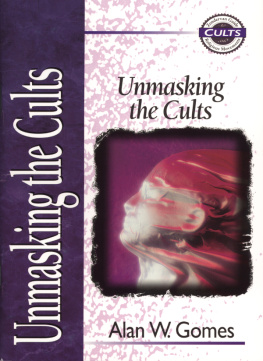
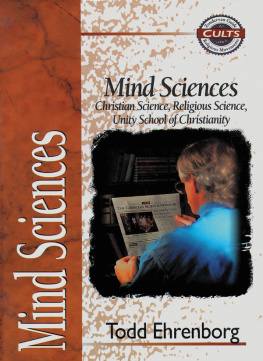
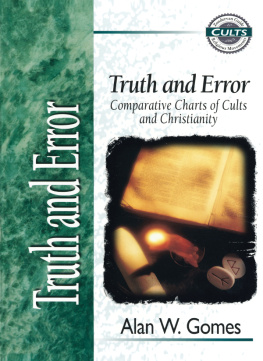
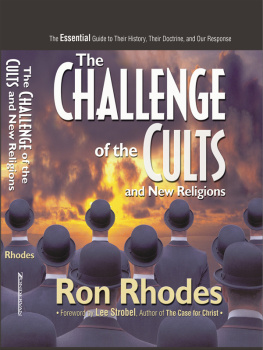
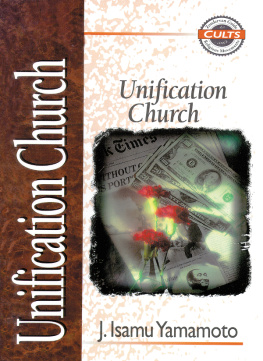
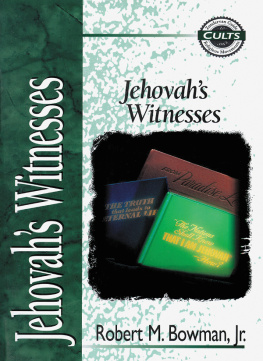
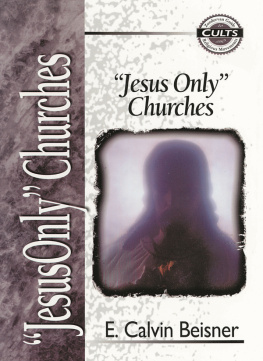
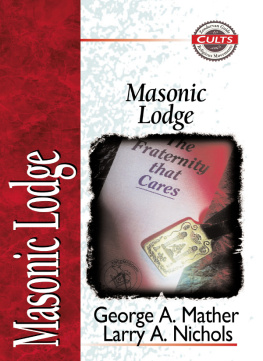
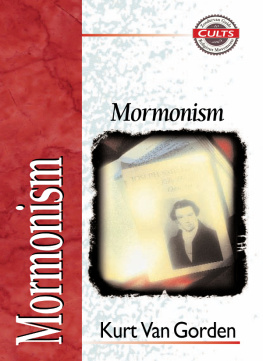
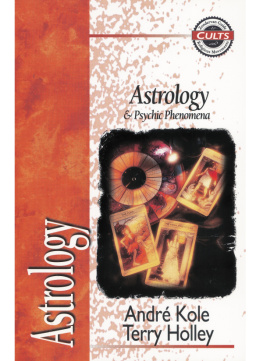
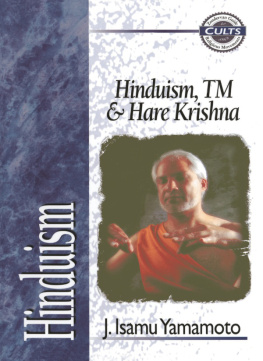





 DP / 10 9 8 7 6 5 4 3 2 1
DP / 10 9 8 7 6 5 4 3 2 1

